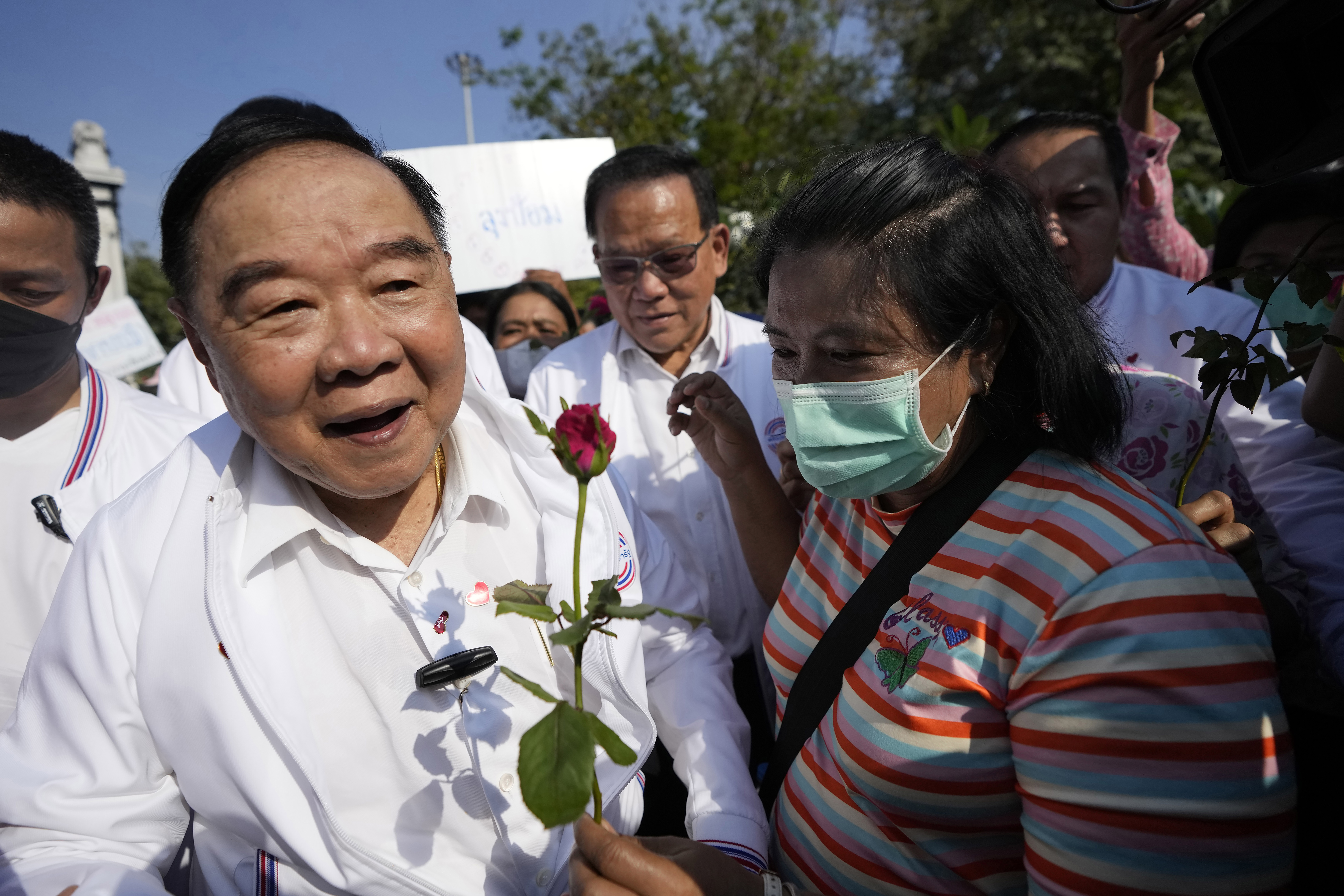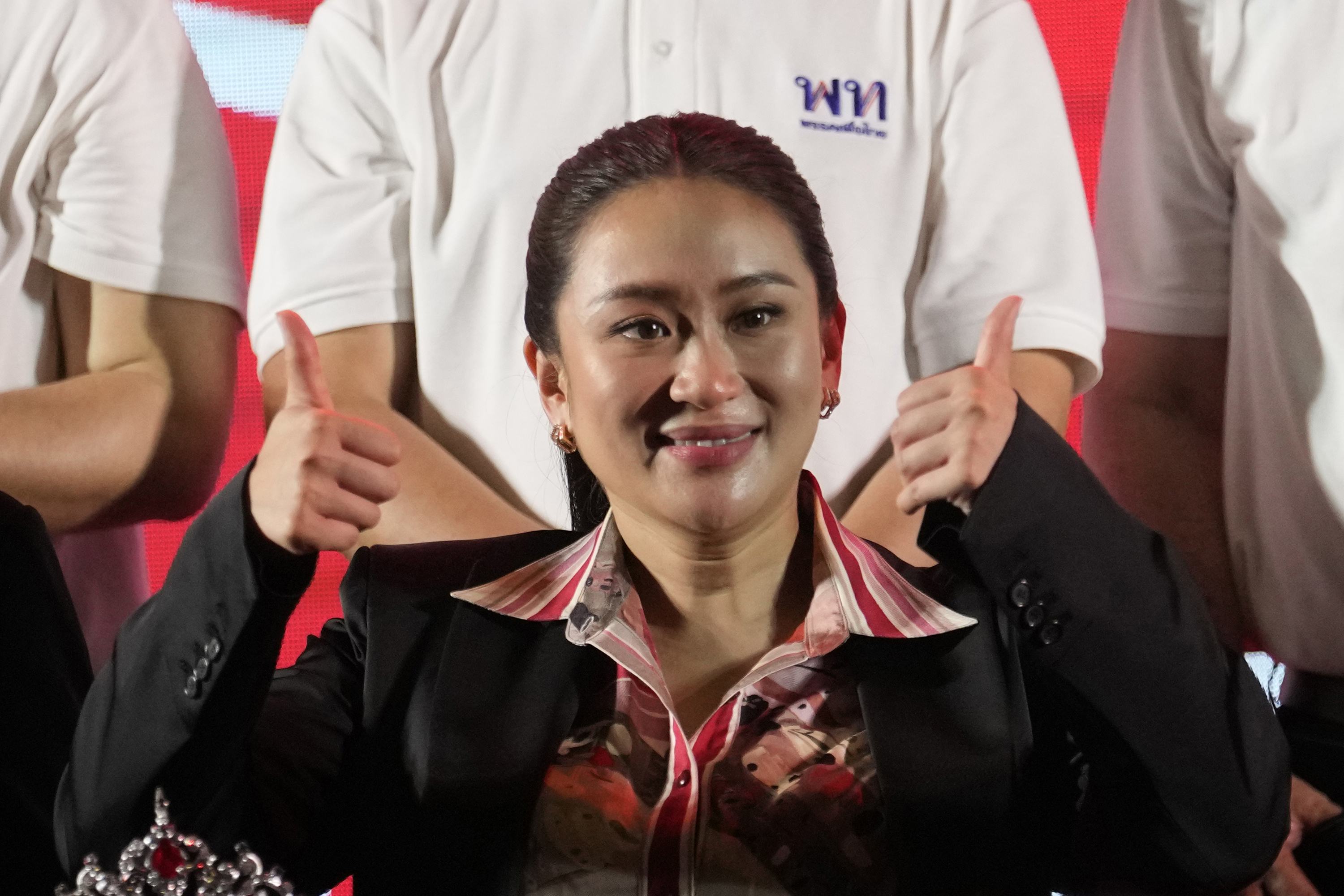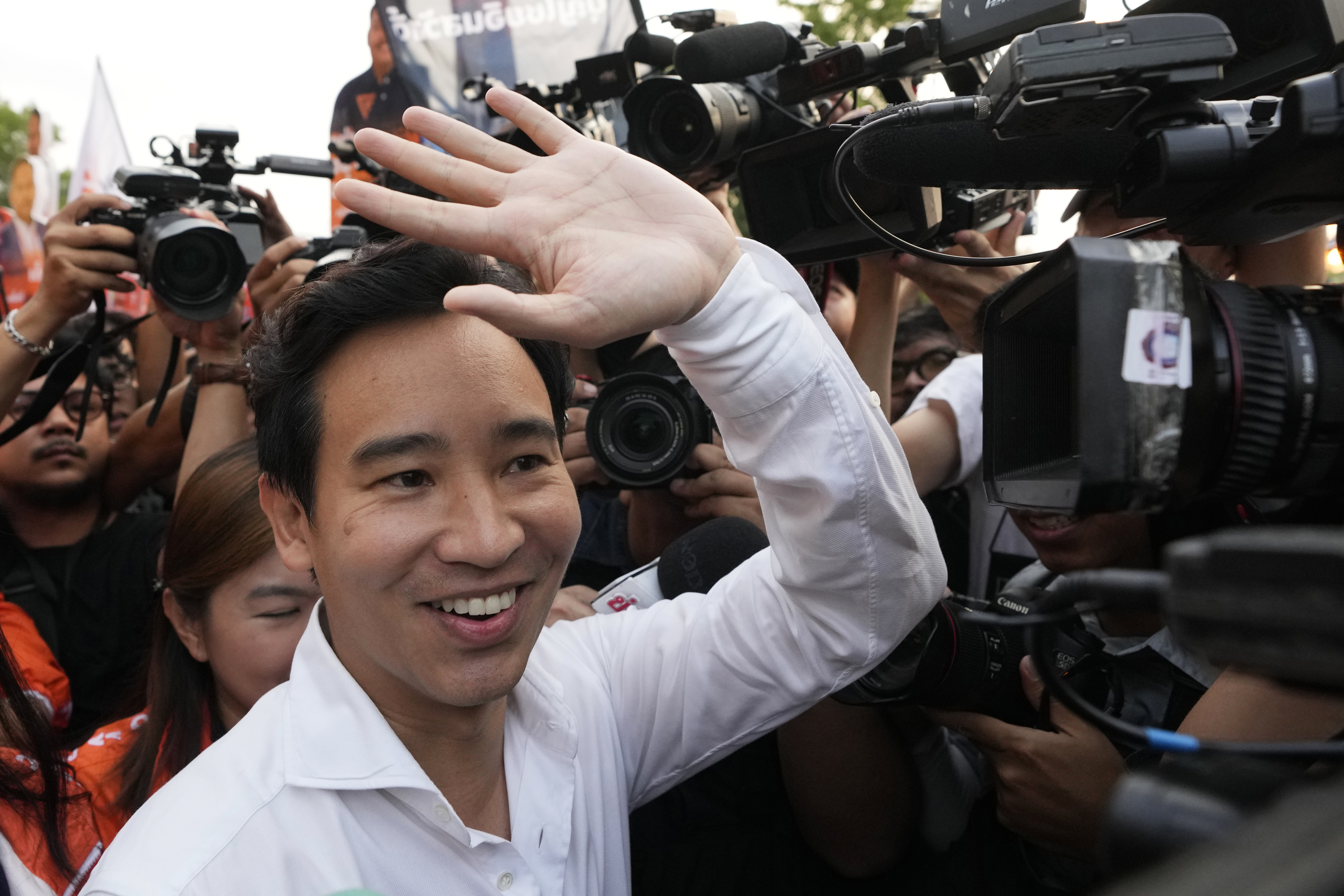
Thailand goes to the polls on Sunday with many voters hoping for an end to the cycle of elections, protests and coups that has hampered the country’s politics for years.
Polling stations open at 8am (01:00 GMT) on May 14 with 500 seats in the lower house of parliament up for grabs. A preliminary result is expected the same night.
As Thailand operates a mixed voting system that includes direct voting as well as a party list based on voters’ party preferences, there is likely to be some uncertainty over the form of the next government as the different parties jockey to form coalitions.
The final choice of prime minister also needs the backing of the 250 members of the upper house who are appointed by the military.
These are the potential candidates for Thailand’s next leader.
Prayuth Chan-ocha

The incumbent prime minister was born on March 21, 1954, into a military family in Thailand’s northeastern province of Nakhon Ratchasima.
A former army chief who seized power in the 2014 coup that removed elected leader Yingluck Shinawatra, Prayuth became civilian prime minister with the military-backed Palang Pracharat party in the last election after forming a coalition with smaller parties.
Earlier this year he split from Palang Pracharat and is now the candidate for the similarly conservative Ruam Thai Sang Chart (United Thai Nation Party), which was formed in August last year. Its policies include monthly allowances for the elderly and a reduction in electricity bills.
Prayuth has tried to position himself as a benevolent leader but can appear aloof on the campaign trail.
In April, he tried to boost his flagging campaign by joining in Songkran festivities and soaking revellers on the streets of Bangkok.
He has also released a campaign song that has been widely played on state radio and television stations. Called Return Happiness to Thailand, it features lyrics such as, “We will do what we promised […] we are asking for a little more time.” The song was widely aired on state radio and television stations.
Prayuth is a graduate of the Chulachomklao Royal Military Academy, a career soldier and a loyal supporter of the royal family.
Prawit Wongsuwan

Incumbent deputy prime minister Prawit Wongsuwan was born on August 11, 1945, and, like Prayuth, is a military man who graduated from the Chulachomklao Royal Military Academy.
Nicknamed Big Pom, the 77-year-old leader of Palang Pracharat took over as caretaker prime minister last year when Prayuth was suspended while a Thai court considered whether he was legally able to hold the post.
Prawit is also defence minister, a post he also held under the short-lived government of Democrat Abhisit Vejjajiva, whose tenure was tarnished by a bloody crackdown on anti-government protesters in 2010.
Prawit has said his policies will be designed to benefit the public and include measures to alleviate poverty and – with Thailand enduring record-high temperatures – address drought.
Paetongtarn Shinawatra

The youngest daughter of former prime minister and telecoms tycoon Thaksin Shinawatra is aiming to be the third member of the Shinawatra dynasty to hold Thailand’s top job.
The 36-year-old was born in the United States on August 21, 1986, and is the most prominent of three prime ministerial candidates for the opposition Pheu Thai party.
The party emerged with the most seats in the 2019 polls, and its mix of progressive and populist policies makes it a formidable challenger this time around. Policy promises include doubling the daily minimum wage, expanding healthcare coverage and developing infrastructure to protect farmers from floods and droughts.
Nicknamed “Ung Ing” by her family, Paetongtarn is married to a commercial airline pilot, and gave birth to her second child – a boy – just two weeks ago.
With both her father and her aunt removed as prime minister in military coups, Paetongtarn has said she is against coups – “especially the last two” – amid speculation she might be willing to do a deal with the military-backed parties in order to form a government. She took a politics degree at Chulalongkorn University.
Pita Limjaroenrat

The 42-year-old former executive at the Thai unit of Asian delivery and ride-hailing app Grab, is the prime ministerial candidate for the Move Forward party.
The progressive party is the latest incarnation of Future Forward, which stormed to third place in the 2019 election under charismatic leader Thanathorn Juangroongruangkit.
The party was forcibly dissolved in 2020 and Thanathorn was disqualified.
Pita was named Move Forward’s leader two weeks later.
Born on September 5, 1980, Harvard-educated Pita has recently pulled ahead of Paetongtarn as preferred prime minister in opinion polls.
Move Forward is the only party to call explicitly for changes to the royal insult laws and military reform.
Anutin Charnvirakul

Anutin Charnvirakul, the incumbent health minister, leads the Bhumjaithai party, and led the country through the pandemic.
The 56-year-old was criticised for calling COVID-19 “just a flu” but delivered on his party’s pledge to decriminalise and promote medical cannabis.
Election promises this time around include solar farm subsidies, the provision of emergency loans for people aged 20 years and above, and a life insurance fund for those aged 60 and above.
Nicknamed “Noo”, Anutin is the son of former minister Chavarat Charnvirakul, and has an engineering degree from Hofstra University in the United States.
Jurin Laksanawisit

Jurin Laksanawisit is the prime ministerial candidate for the Democrat party, the country’s oldest political party but whose popularity has declined as it has shifted towards the right.
Wiped out in its traditional Bangkok and southern strongholds in 2019, this time it faces voters in the wake of sexual assault allegations made against a party official during the race for Bangkok governor last year. Jurin offered his “deepest apologies” over the controversy but refused to step down as leader.
Born on March 15, 1956, Jurin is a politics graduate from Thammasat University who was first elected to parliament in 1986 and has held a number of ministerial posts.
The party’s platform includes establishing community banks nationwide, free education to university level, a mandatory savings policy and the extension of the retirement age from 60.
Srettha Thavisin

Srettha Thavisin is another of Pheu Thau’s prime ministerial candidates and was the chief executive of luxury property developer Sansiri before he entered politics.
The 60-year-old is popular with the business community and could be a more palatable figure for voters wary of the dominance of the Shinawatra family.
He is known for sharing his views on Twitter.







